Chinese-Japanese Island War Won By Germany

Japanese carmakers and their Chinese joint venture partners lost big-time in the spat over the Diaoyu/Senkaku islands. The winners are German carmakers and their Chinese joint venture partners. Oddly enough, the central government ends up with a shot in the foot.
From Toyota (-48.9 percent), to Honda(-40.5 percent) and Nissan (-35.3 percent), all Japanese automakers reported drastically lower China sales for September, after smashed cars and torched dealerships turned a Japanese car into a sudden liability. (Data via Reuters.)
Islands Row ScoresheetLosersJapan Co.China PartnerSept. SalesToyotaFAW, GAC-48.9%SuzukiChangan-42.5%HondaDongfeng, GAC-40.5%NissanDongfeng-35.3%MazdaChangan-35.0%WinnersJapan Co.China PartnerSept. SalesBMWBrilliance55.0%VolkswagenFAW, SAIC25.0%AudiFAW20.5%HyundaiBAIC15.0%MercedesBAIC10.0%GMSAIC1.7%Source: Reuters and company dataGerman brands emerge as the ( not for TTAC readers) surprising winner of the war of words over uninhabited rocks. Sales of German branded cars rose between 10 percent in the case of Mercedes and 55 percent in the case of BMW. The biggest winner in terms of volume is Volkswagen. In September 2012, Volkswagen passenger cars sold 40,000 units more in China than in September 2011, Audi added 6,000 units. On a group level, Volkswagen should have increased its September sales by close to 50,000 units, about double its losses in Europe.
GM missed out on a chance to take global market share from its Japanese rivals.
Little contemplated: Each car lost for Japan’s makers is a car lost for a Chinese company. Foreign automakers must have joint ventures with Chinese entities, and most of them are government-owned.
A strange pattern emerges: On the losing side are mostly central government owned companies: FAW, Changan, and Dongfeng belong to the central government. GAC is owned by the Guangdong province and its capital city of Guangzhou.
On the winning side are (mostly) independent Brilliance, Beijing-owned BAIC, Shanghai-owned SAIC, and FAW. FAW loses on the Toyota side, but wins on the Volkswagen and Audi side, we’ll call that a draw until better numbers come in.
Translation: “Even if China becomes nothing but tombstones, we must exterminate the Japanese; even if we have to destroy our own country, we must take back the Diaoyu Islands.”
With Germany, and especially Volkswagen walking away as the winner, the banner in front of a Chinese Audi dealership that called for the elimination of all Japanese will likely be brought up again.

Bertel Schmitt comes back to journalism after taking a 35 year break in advertising and marketing. He ran and owned advertising agencies in Duesseldorf, Germany, and New York City. Volkswagen A.G. was Bertel's most important corporate account. Schmitt's advertising and marketing career touched many corners of the industry with a special focus on automotive products and services. Since 2004, he lives in Japan and China with his wife <a href="http://www.tomokoandbertel.com"> Tomoko </a>. Bertel Schmitt is a founding board member of the <a href="http://www.offshoresuperseries.com"> Offshore Super Series </a>, an American offshore powerboat racing organization. He is co-owner of the racing team Typhoon.
More by Bertel Schmitt
Latest Car Reviews
Read moreLatest Product Reviews
Read moreRecent Comments
- Jalop1991 Gen 1 xB was one of the greatest cars ever built.As was the Matrix.Toyota really knows how to design cars.
- 2manyvettes Speaking of cigarettes, had a 1979 Buick Electra 225, a spiritual decendent of these land yachts and I was especially proud of the the fact it had three cigarette lighters, one in the center of the dash and one each in the rear doors, including its own ashtray. Diffeent times.
- AZFelix Can the shift of Stellantis in producing "fuming" investors rather than ICE vehicles be counted as a carbon offset tax deduction? This may help improve the company's financial situation.
- Theflyersfan Richard Petty Driving Experience, Charlotte Motor Speedway. It costs a small fortune but it is an unreal experience. And those corners are far more banked than you think they are on TV. I once walked on Darlington and you think you might have to crawl on some of the banking.
- Bkojote I'll offer some real consumer insights here based on product rather than low-iq political takes:[list=1][*]A lot of legacy automaker EV's are mostly transitional and expensive. There's little incentive to spend $70k on something that uses outmoded voltage architecture. So a lot of legacy automakers that rushed into the EV space are now realizing that nobody's going to finance a $70k vehicle good for 180 actual miles at 8% APR.[/*][*]Tesla has been crapping the bed on all fronts. See: Cybertruck.[/*][*]The charging network outside of Tesla has serious growing pains. Anything sold without NACS right now might as well by Hydrogen powered.[/*][*]Future EV products are already announced that are more in line with mainstream consumer demands. See: Rivian R3, Lucid Gravity, et. al. Any EV purchased now is going to be exponentially overshadowed by what's on the market in 24-36 months.[/*][*]PHEV vehicles simply make more sense for most people right now. It's why a Rav4 Prime is unobtanium as it offers the best of both worlds, allowing someone to commute on electricity but still take their vehicle on a road trip. [/*][/list=1]


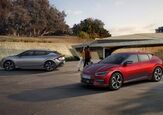
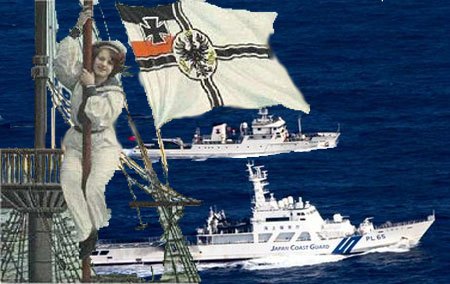




















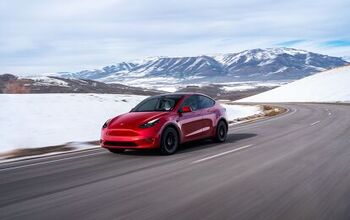



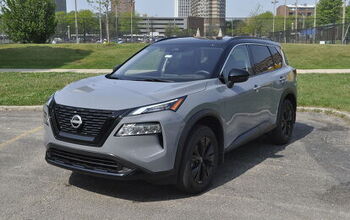


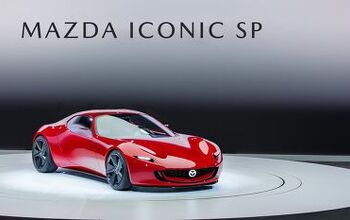



Comments
Join the conversation
"Could America’s unofficial position be hurting GM in China?" I don't think so, I think the people just prefer BMW/MB/VW over GM. Partially has to do with size and partially that the GM competing vehicles just don't offer the same range as what comes from VW. There is also the exposure/# of dealers. This is partially why Ford has little market penetration, so few dealers. VW is everywhere, for the American dealers, you really have to look for them. And Chrysler isn't even on people's radar here at all outside of Jeep.
WSJ has an article of how these anti-Japanese boycotts will have on impact on Chinese partners. http://online.wsj.com/article/SB10000872396390443493304578038880892560720.html?mod=WSJ_hps_MIDDLE_Video_Third Dongfeng is partnered with Nissan & Honda: Guangzhou is partnered with Honda & Toyota: "Japanese brands will account for just over 50% of Dongfeng's total unit sales this year, while at Guangzhou they will account for virtually all passenger-vehicle sales." The winners will be Geely (pure-play domestic brand) and Brillance (which has few Japanese ties).